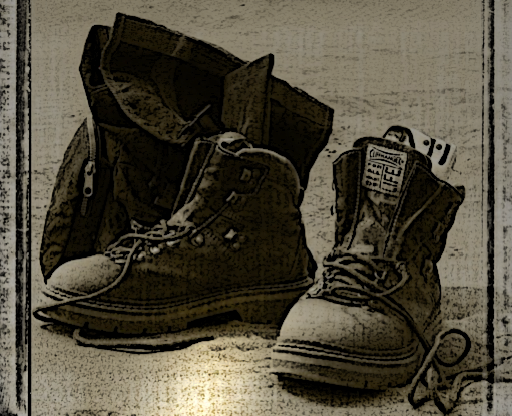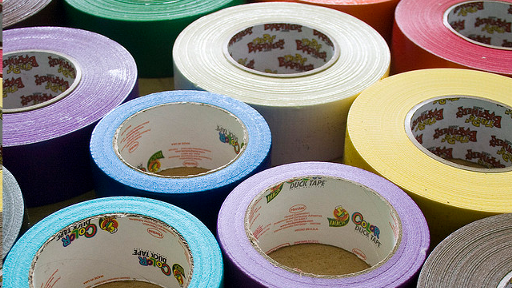
Photo in the public domain, original on Pixabay
I love my boots. I’ve had them for ages: I remember wearing them in high school, so that’s at the very least 10 years ago (and yes, they still fit). For some reason, I forgot about them for a while, and rediscovered them a couple of years back. I use them when I need some warmth around my feet: canvas shoes just don’t cut it in the snow and rain. Which is pretty much all year round in Britain.
I have “broken into” them, that is, they are now shaped nearly perfectly to my foot. They are highly comfortable, and still waterproof, even though they look tattered. A bit of polish wouldn’t hurt, but I’ve never cared about looks that much.
The outer sole has lost a fair amount of its thickness, but still has a good inch on the heel (how thick they were to start off with, I have no clue, but it sure is impressive). The issue is, the tread has been worn through. The outer soles are now virtually smooth. To the point of being slippery over zebra crossings when it’s been raining. So imagine what it’s like with the recent snow and icy patches… (I only fell once!)
I am now convinced I need to go and see a cobbler (such a cool word) and try and get some new soles on them. And maybe give them a good polish all round, and new laces and everything.
Yet part of me is reluctant to do so:
- reluctant to recognise that some form of change is needed. This is harder to do than just going to buy new shoes, because I could always choose that I don’t like my new shoes and go back to my old, tattered boots.
- reluctant to recognise that that change will come from the outside. I will not have complete control over the type of sole, although I can be involved in the process (choosing, for instance, the pricier or cheaper option)
- reluctant, ultimately, because even if it’s only the sole that gets changed, I will still have to break into it (the wearing off of the sole is irregular, there’s much more left on the inside). I will temporarily lose some comfort.
As you’re reading this, you are probably wondering where I’m going with this: no mention of the Bible, no mention of leadership, no mention of anything remotely Christian, and not one single mention of tea. The presence of “slipper” in the title should not really be enough to warrant being on here, either.
I could spell out the ways in which I think we sometimes have a similar experience in various aspects of our lives. I’m thinking particularly about Bible reading and theological hobby-horses because I feel, personally, that they are the areas that this attitude is the most dangerous, and the fall that follows the slip there is the most hurtful.
But I also think that this is the kind of experience that is extremely personal, and that it affects us all in quite different areas. So what I suggest, this once, is that you go back over this little story and think on all the details, how they might transfer to your own experience. Are there any areas where you got a little too comfortable? As far as the two areas I mentioned above are concerned, this should be transparent enough. And please, please share any insight.
I will highlight a few elements, by way of conclusion.
- breaking into my boots was a good thing. Comfort was a good thing – until it left me hanging on to dangerous things. Intrinsically, there’s nothing wrong with looking for comfort!
- my shoes were looking tattered. People could see that they were well worn, and (not in a mean way) someone had mentioned it. Looks sometimes betray a deeper problem – opening up to scrutiny could have helped before the snow fell.
- the boots were completely safe, and still waterproof, as long as there was no icy patch.
- I don’t have to replace all the boots – just the sole. Don’t throw out the baby with the bath water!




